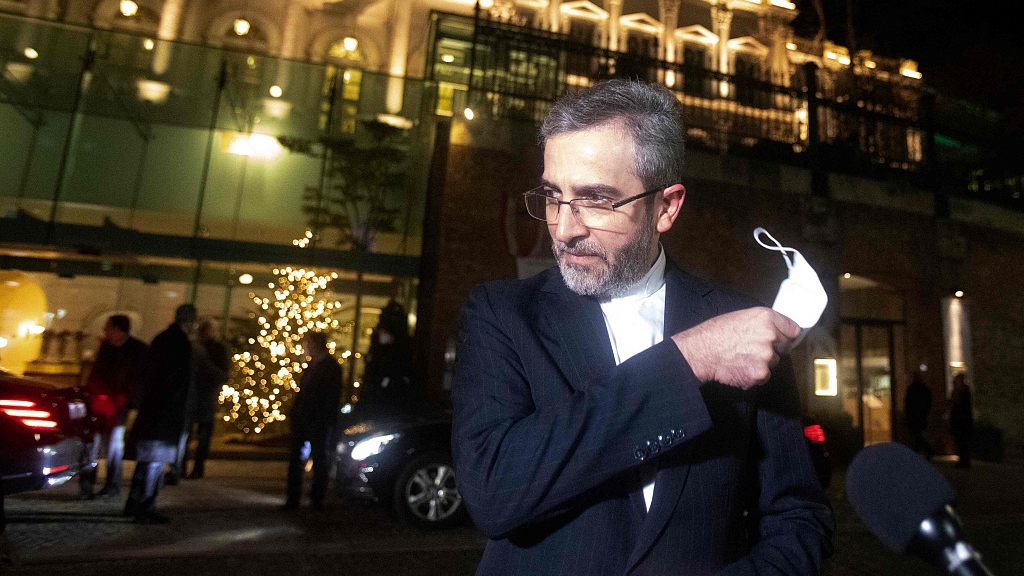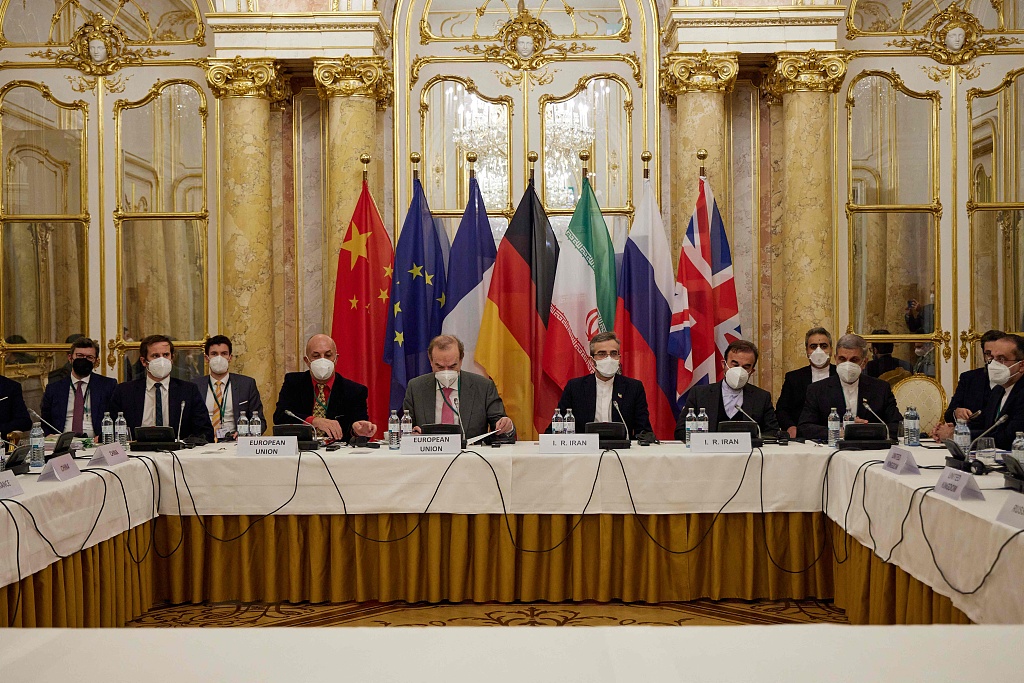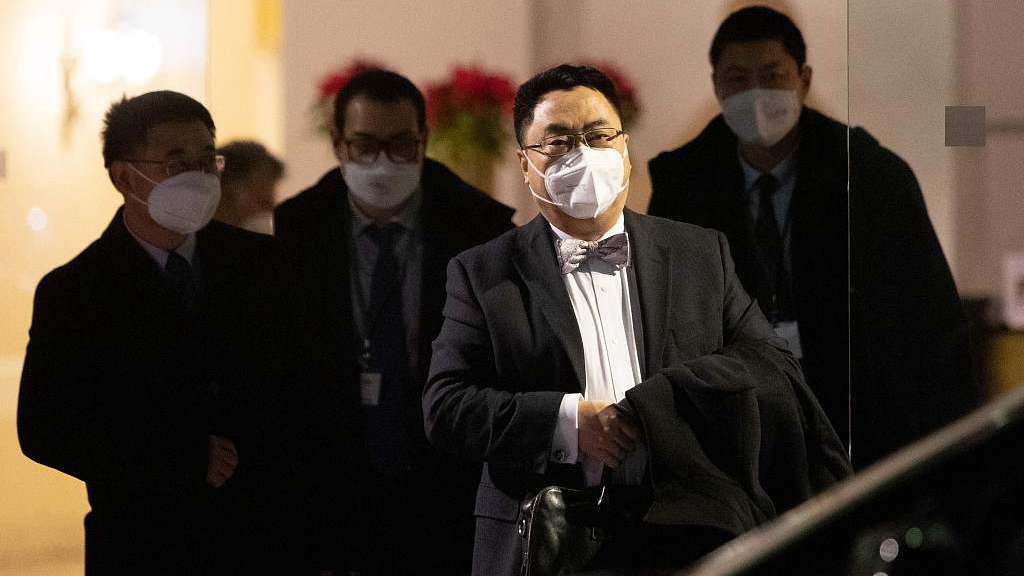01:20

Indirect talks between Iran and the United States, which seek to salvage the 2015 Joint Comprehensive Plan of Action (JCPOA) nuclear deal, resumed on Monday in Vienna. Tehran has emphasized the need to lift sanctions despite scant progress on reining in its atomic activities.
The seventh round of talks ended 10 days ago with new Iranian demands being added to a working text.
European Union diplomat Enrique Mora, who is chairing the talks, said all sides were showing "a clear will to work toward the successful end of this negotiation," calling it a "very good sign."
"If we work hard in the days and weeks ahead, we should have a positive result," Mora told media at a news conference. "It's going to be very difficult. It's going to be very hard. Difficult political decisions have to be taken both in Tehran and in Washington."
He was speaking shortly after a meeting of the remaining parties to the deal – Iran, Russia, China, France, Britain, Germany and the European Union – formally kicked off the eighth round of talks on Monday evening.
"There is a sense of urgency in all delegations that this negotiation has to be finished in a relatively reasonable period of time. Again, I wouldn't put limits, but we are talking about weeks, not about months," he said.

Representatives attend a Joint Comprehensive Plan of Action meeting to find a way to revive the Iran nuclear deal in Vienna, Austria, December 27, 2021. /CFP
Representatives attend a Joint Comprehensive Plan of Action meeting to find a way to revive the Iran nuclear deal in Vienna, Austria, December 27, 2021. /CFP
Under the JCPOA between Iran and China, Russia, the United States, Britain, France and Germany, Iran curbed its uranium enrichment program in return for the lifting of economic sanctions from the U.S., the United Nations and the EU.
In May 2018, the administration of then-U.S. President Donald Trump withdrew from the deal and unilaterally reimposed sanctions on Iran. In response, Iran gradually stopped implementing parts of its commitments to the agreement from May 2019.
Seven rounds of talks have been held in Vienna since April to iron out steps Iran and the U.S. must take to return to full compliance with the JCPOA.
Iran insists all U.S. sanctions must be lifted before steps are taken on the nuclear side, while Western negotiators say nuclear and sanctions steps must be balanced. U.S. sanctions have slashed Iran's oil exports, its main revenue source.
Iranian Foreign Minister Hossein Amir Abdollahian said ahead of the eighth round of talks that the most important issue for Tehran is to ensure "Iranian oil can be sold easily and without hindrance," according to Iranian media.
Mora said both the lifting of sanctions and Iran's nuclear restrictions would be discussed.
00:56

Wang Qun, the Chinese envoy to the United Nations and other international organizations in Vienna, on Monday called for expanding consensus, properly handling differences and jointly promoting new breakthroughs in the talks.
"Sanctions should also not be used for threatening casually and new sanctions should not be introduced against Iran during the negotiations," Wang said.
The parties have forged a new "common text" on nuclear issues and a "common understanding" on lifting sanctions, he said, adding that the parties agreed to keep negotiating and focus on the key points.
(With input from agencies)
(Cover: Iran's chief nuclear negotiator Ali Bagheri Kani speaks to the press in front of the Palais Coburg, venue of the Joint Comprehensive Plan of Action meeting in Vienna, Austria, December 27, 2021. /CFP)

